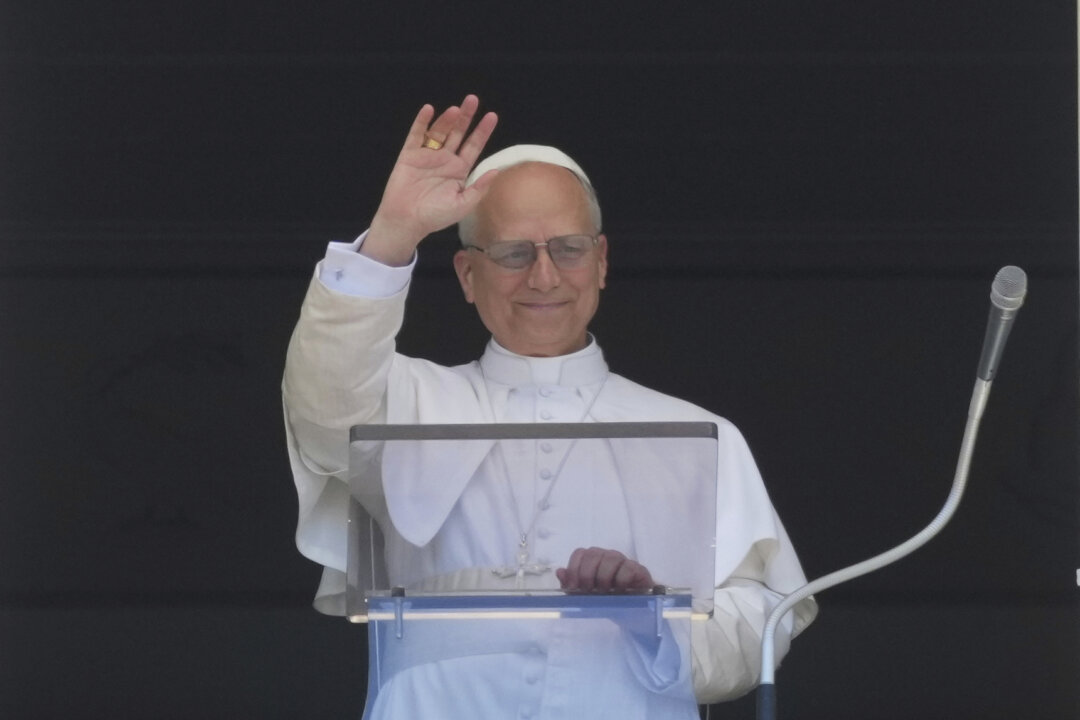In Pope Leo XIV’s first interview, he signaled a potential change to the Vatican’s China deal, saying he is listening to persecuted Catholics in China.
Pope Leo XIV gave the interview in Spanish to the Catholic publication Crux, which was published in installments this week, starting with the first on Sept. 14.
He said he was in “ongoing dialogue with a number of people, Chinese, on both sides of some of the issues that are there.”
He did not announce any changes, deferring to his predecessors, but said there have been several high-level discussions about China.
“I’m trying to get a clearer understanding of how the church can continue the church’s mission, respecting both culture and political issues that have obviously great importance, but also respecting a significant group of Chinese Catholics who for many years have lived some kind of oppression or difficulty in living their faith freely, and without choosing sides,” Pope Leo said.
“I’m certainly taking that into consideration, along with other experiences that I’ve had previously in dealing with Chinese people, in government as well as religious leaders and lay people. It’s a very difficult situation.”
He has recently made other announcements regarding China: a new diocese in Zhangjiakou, China, and the consecration of its first bishop, Reverend Giuseppe Wang Zhengui.
Under Pope Francis, the Vatican signed an agreement with China in 2018 on the appointment of bishops, and the details of that deal have not been made public.
It drew widespread concern among human rights advocates, given that the Chinese Communist Party (CCP) is known to persecute Catholics, Christians, and other religions, labeling worshippers who do not follow the state version of religions as cultists and criminalizing faith outside of state control. The CCP in 1955 detained the Roman Catholic Bishop of Shanghai for refusing to renounce papal authority, and he remained in prison for three decades.
In October 2024, the Vatican and China renewed this deal, which the church has signaled is needed to fill many empty episcopal seats in China.
That same month, the Center for Religious Freedom at Hudson Institute published a report that found that the persecution of Catholics had “intensified” since the 2018 deal, focusing on the persecution of 10 Catholic bishops. They include bishops who were wrongfully detained, some multiple times, and others who were disappeared.
The report states that the CCP targets “hierarchs who resist Chinese Communist Party control over religious matters.”
The persecuted bishops had opposed the Chinese Patriotic Catholic Association (CPCA), according to the report. Membership would have required them to pledge independence from the Holy See, base sermons on “Xi Jinping Thought”—the CCP leader’s communist and political ideology—and be subjected to state supervision.
Beijing pressured bishops to join the CPCA immediately after the 2018 deal, according to the report. In 2019, the Vatican issued guidelines that membership with “conscientious objection” to the CPCA was permitted, but the agreement itself does not accommodate conscientious objection to the CPCA, the report notes.
According to the report, CPCA objectors formed a sort of Catholic underground, and without these Catholics, the church “faces an unprecedented challenge in forming the next generation of Chinese bishops.”
“The Holy See is in a race against time to shore up its ties with the bishops within the CPCA before the Chinese episcopacy becomes wholly indistinguishable from the rest of the United Front Work Department,” the report states, referring to the Chinese regime’s global influence operations.
We had a problem loading this article. Please enable javascript or use a different browser. If the issue persists, please visit our help center.

